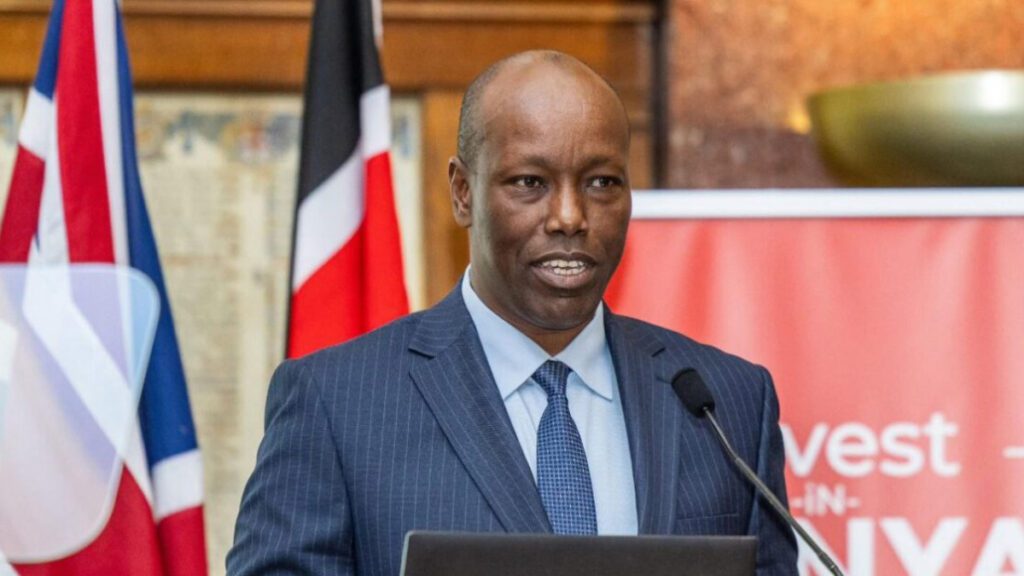Kenya has formally protested against new taxation and licensing measures introduced by Tanzania that target non-citizens, warning the move undermines the East African Community (EAC) Common Market Protocol. Trade CS Lee Kinyanjui says the discriminatory policies threaten regional trade and integration, urging bilateral talks to resolve the dispute.
Kenya has formally protested against Tanzania’s new tax and licensing restrictions targeting non-citizens, warning that the measures could derail progress made under the East African Community (EAC) integration agenda.
In a strongly worded statement issued on Tuesday, July 29, Trade and Industry Cabinet Secretary Lee Kinyanjui criticised the United Republic of Tanzania for introducing fiscal and regulatory barriers that contravene the EAC Common Market Protocol.
“The government of Kenya has, however, noted with concern the imposition of new and discriminatory tax measures by the United Republic of Tanzania, which threaten the regional trade gains,” said Kinyanjui.
What Are the Contested Measures?
Kenya’s protest targets two newly introduced laws in Tanzania:
- Tanzania Finance Act, 2025
- Amended Tanzania Excise (Management and Tariff) Act, 2019
These laws introduce:
- A 10% excise duty
- A 15% Industrial Development Levy (IDL)
Additionally, Kenya has objected to the Business Licensing (Prohibition of Business Activities for Non-Citizens) Order, 2025, which bars foreigners from operating in 15 categories of businesses, including micro and small enterprises. Although existing licence holders are exempt, the order took immediate effect and imposes heavy penalties on violators.
Violation of EAC Principles
Kenya argues that the laws violate Article 13 of the EAC Common Market Protocol (CMP), which guarantees the right of establishment and non-discrimination for EAC nationals within partner states.
“All Partner States made binding commitments, and Article 13 of the EAC CMP specifically allows EAC nationals to establish and operate businesses,” CS Kinyanjui stated.
“The Business Licensing Order, which seems to criminalise lawful EAC investments, will hurt both our economies.”
Kenya–Tanzania Trade Snapshot
Tanzania remains one of Kenya’s biggest trading partners in the region:
- Bilateral trade volume (2024): Ksh 63 billion
- EAC share of Kenya’s total exports: 28.1% (worth Ksh 297 billion)
Kinyanjui expressed concern that unilateral actions like these could reverse years of economic integration and strain diplomatic relations within the EAC.
Ongoing Bilateral and Regional Efforts
Kenya has tabled its grievances for resolution through both bilateral meetings and regional frameworks:
- A technical meeting on tobacco trade will be held in Arusha from August 4–5, 2025
- A Joint Trade Committee session on levies, fees, and charges is scheduled for August 11–12
Kenya is also backing a regional compliance exercise initiated during the 1st Extraordinary Sectoral Council on Finance and Economic Affairs (SCFEA). Key directives include:
- EAC Secretariat to list conflicting taxes and levies by August 30, 2025
- Harmonisation of “imports” and “exports” definitions across EAC states by June 30, 2025
- A follow-up SCFEA compliance meeting by September 30, 2025
A Call for Unity and Fairness
In closing, Kinyanjui reiterated Kenya’s commitment to non-discrimination, transparency, and the spirit of regional cooperation.
“In line with the spirit of the EAC, ‘One People, One Destiny,’ we are committed to upholding the principles of free movement of goods, services, labour, and capital.”


